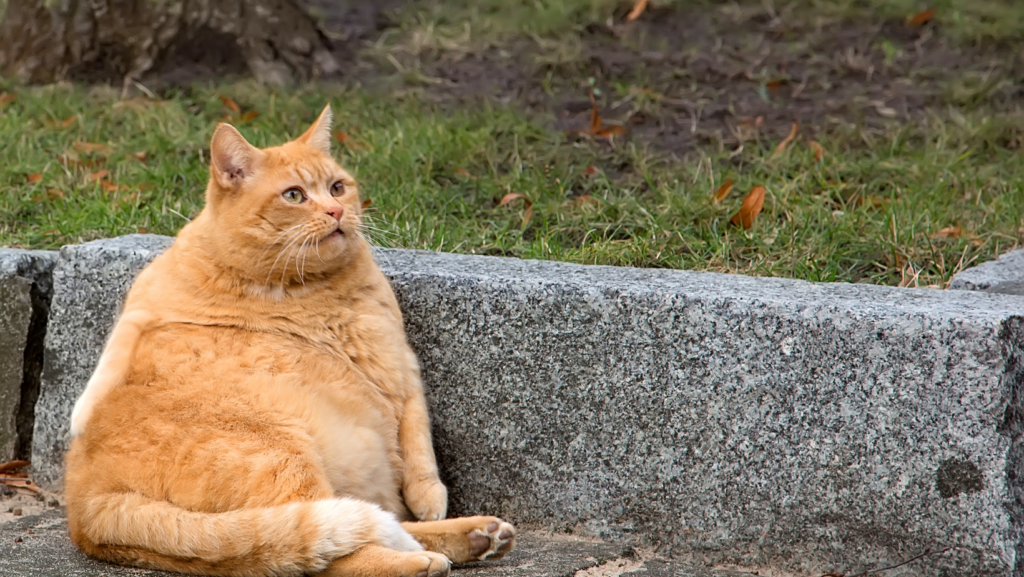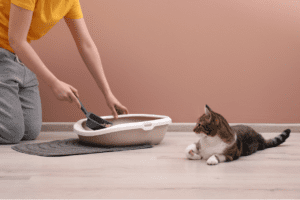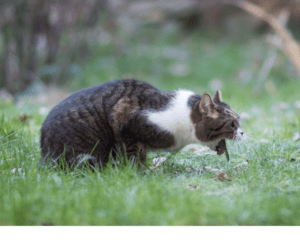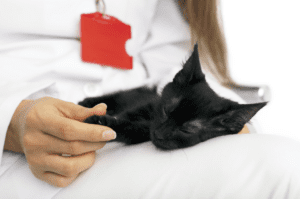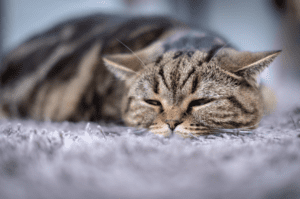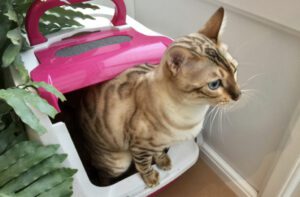Today, we’re delving into a common but often misunderstood condition affecting our feline friends: hyperthyroidism. This overactive thyroid condition can have significant implications for our cats’ health and well-being, but fear not! With the right information and proactive measures, we can navigate the challenges of feline hyperthyroidism and ensure our furry companions lead happy, healthy lives. So, let’s dive into the causes, treatment options, prevention strategies, and tips for maintaining a healthy lifestyle for cats with hyperthyroidism.
Understanding Feline Hyperthyroidism:
Unraveling the Causes:
Feline hyperthyroidism occurs when the thyroid gland, located in the neck, becomes overactive and produces excessive amounts of thyroid hormone. While the precise cause remains elusive, factors such as age, genetics, dietary influences, and environmental toxins may contribute to the development of this condition in cats. Some researchers also suspect a link between hyperthyroidism and environmental contaminants such as flame retardants found in household products.
Spotting the Symptoms:
Recognizing the signs of hyperthyroidism in cats is crucial for early detection and intervention. Common symptoms may include weight loss despite increased appetite, excessive thirst and urination, hyperactivity or restlessness, vomiting, diarrhea, unkempt appearance, and rapid or irregular heartbeat. These symptoms may vary in severity and can mimic other health conditions, underscoring the importance of veterinary evaluation for accurate diagnosis.
Diagnosis and Confirmation:
Diagnosing hyperthyroidism in cats typically involves a combination of clinical evaluation, blood tests to assess thyroid hormone levels, and imaging studies such as ultrasound or scintigraphy to visualize the thyroid gland. Once hyperthyroidism is confirmed, your veterinarian can recommend appropriate treatment options based on your cat’s individual needs and health status.
Managing Feline Hyperthyroidism:
Conventional Treatment Options:
Traditional treatment for feline hyperthyroidism aims to restore thyroid hormone levels to normal and alleviate associated symptoms. Common treatment options may include:
- Oral medication: Prescription medications such as methimazole or carbimazole are commonly used to suppress thyroid hormone production and control hyperthyroidism symptoms. Regular monitoring of thyroid hormone levels and potential side effects is essential when using medication therapy.
- Radioactive iodine therapy: This specialized treatment involves administering a radioactive form of iodine that selectively destroys overactive thyroid tissue while sparing surrounding healthy tissue. Radioactive iodine therapy offers a long-term cure for hyperthyroidism in most cats and is considered the treatment of choice for many cases.
- Surgical removal of the thyroid gland: Thyroidectomy, or surgical removal of the thyroid gland, may be recommended in cases where other treatment options are not feasible or effective. Surgical intervention carries risks and requires careful consideration of the cat’s overall health and surgical candidacy.
Nutritional Support:
Providing a balanced and nutritious diet is essential for supporting overall health and well-being in cats with hyperthyroidism. Choose high-quality cat food that is formulated to meet your cat’s nutritional needs, with a focus on lean protein sources, essential vitamins and minerals, and limited carbohydrate content. Avoid feeding excessive amounts of treats or table scraps, as these can contribute to weight gain and exacerbate hyperthyroidism symptoms.
Environmental Enrichment:
Enriching your cat’s environment with engaging toys, climbing structures, scratching posts, and interactive play sessions can help alleviate stress and promote mental and physical stimulation. Creating a stimulating and comfortable living space for your cat can enhance their quality of life and support their overall health and well-being.
Preventing Feline Hyperthyroidism:
Minimize Exposure to Environmental Toxins:
Limiting your cat’s exposure to potential environmental toxins and contaminants is essential for preventing health conditions such as hyperthyroidism. Avoid using products containing flame retardants, pesticides, and other chemicals that may pose risks to your cat’s health. Choose natural and environmentally friendly cleaning products, and be mindful of potential hazards in your cat’s surroundings.
Regular Veterinary Check-Ups:
Routine veterinary examinations are critical for monitoring your cat’s health and detecting any early signs of thyroid dysfunction or other medical issues. Schedule regular check-ups with your veterinarian to assess your cat’s overall health, discuss any concerns or changes in behavior, and ensure that they receive appropriate preventive care and screenings.
Alternative Approaches to Feline Hyperthyroidism:
Herbal and Nutritional Supplements:
Some pet owners may explore alternative therapies such as herbal supplements, dietary modifications, and nutritional supplements to support thyroid health and alleviate hyperthyroidism symptoms in cats. While research on the efficacy of these alternative approaches is limited, certain herbs and nutrients may have potential benefits for thyroid function and overall well-being.
Acupuncture and Traditional Chinese Medicine:
Acupuncture and traditional Chinese medicine (TCM) modalities such as acupuncture, herbal medicine, and dietary therapy may offer additional support for cats with hyperthyroidism. These holistic approaches aim to restore balance and harmony to the body’s energy systems, promote healing, and support overall health and well-being.
Maintaining a Healthy Lifestyle for Cats with Hyperthyroidism:
Dietary Management:
Feeding a balanced and nutritionally complete diet is essential for managing hyperthyroidism and supporting your cat’s overall health and well-being. Choose high-quality cat food that is formulated to meet your cat’s specific nutritional needs, with a focus on lean protein sources, essential vitamins and minerals, and limited carbohydrate content. Consider consulting with your veterinarian or a veterinary nutritionist to develop a customized diet plan tailored to your cat’s individual needs and health status.
Stress Reduction:
Minimizing stressors in your cat’s environment and providing a calm, predictable routine can help alleviate anxiety and promote overall well-being. Create a comfortable and stimulating living space for your cat, with plenty of opportunities for rest, play, and social interaction. Consider using pheromone diffusers or calming supplements to help reduce stress and anxiety in sensitive cats.
Regular Exercise and Mental Stimulation:
Regular exercise and mental stimulation are essential for maintaining your cat’s physical and mental health, especially in cats with hyperthyroidism. Provide plenty of opportunities for play, exercise, and exploration, with engaging toys, climbing structures, and interactive games to keep your cat active and entertained. Daily play sessions and enrichment activities can help prevent boredom and promote a healthy lifestyle for your cat.
Feline hyperthyroidism presents unique challenges for cat owners, but with proper understanding, proactive management, and veterinary guidance, affected cats can lead happy, healthy lives. By recognizing the causes, symptoms, and treatment options for hyperthyroidism, implementing preventive measures to minimize exposure to environmental toxins, exploring alternative therapies and complementary approaches, and maintaining a healthy lifestyle for your cat, you can effectively manage this condition and provide your furry companion with the care and support they need to thrive. Always consult with your veterinarian for personalized advice and recommendations tailored to your cat’s individual needs and circumstances. Together, we can ensure that every cat enjoys a life full of health, happiness, and vitality.
